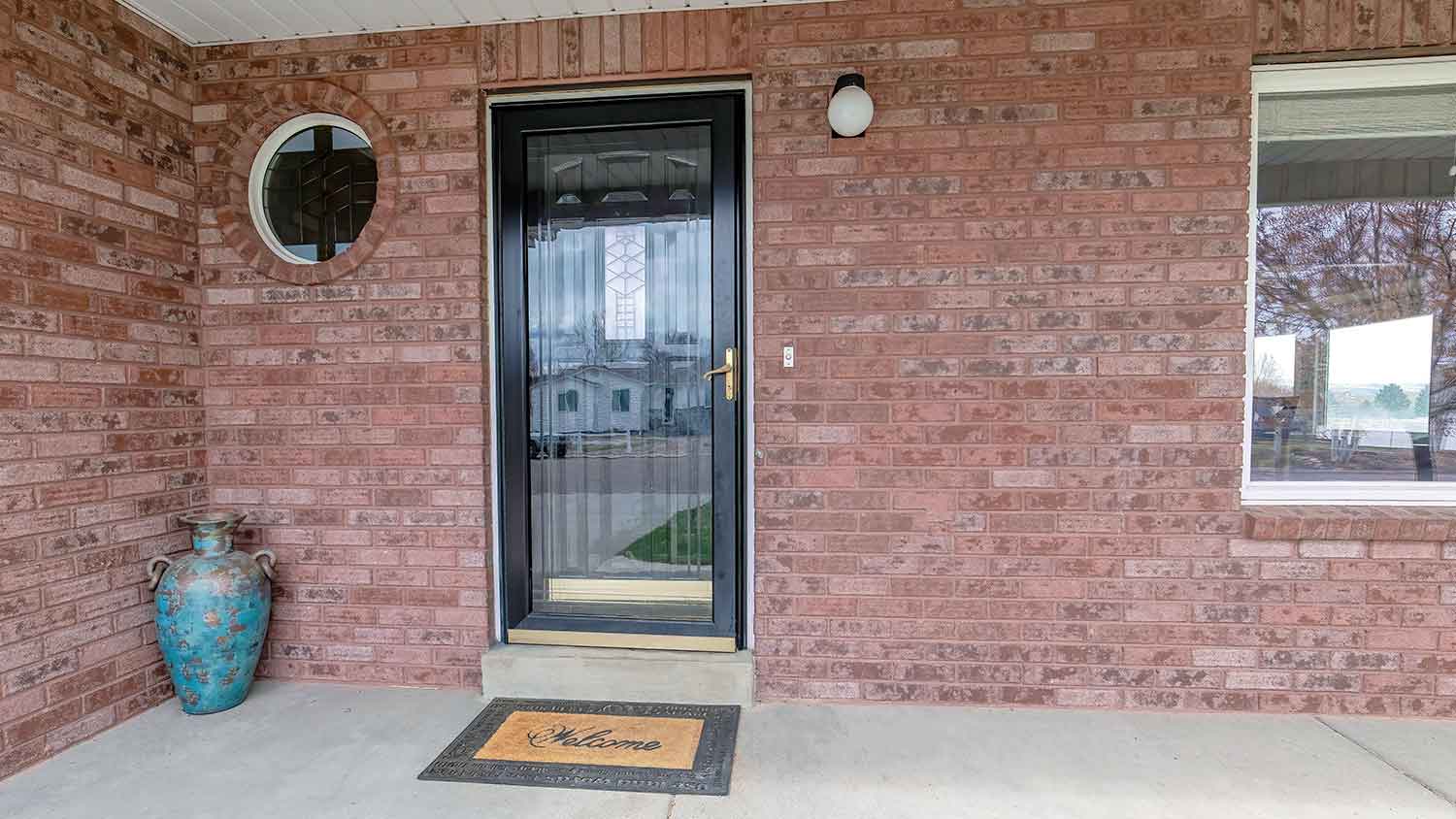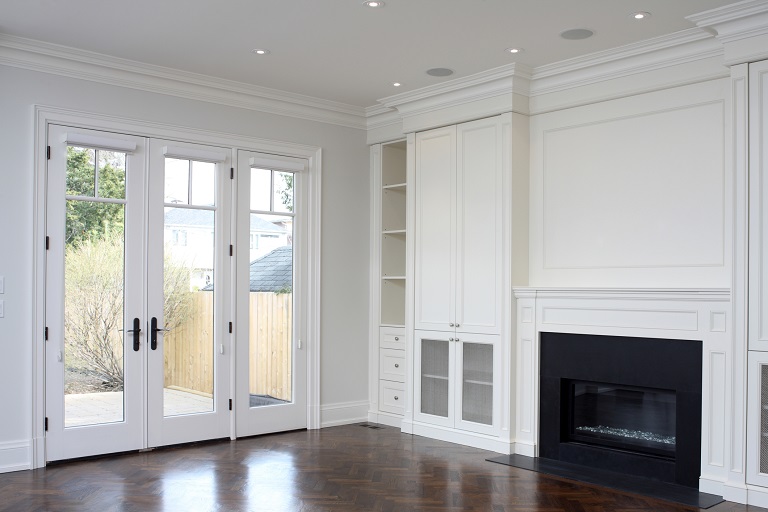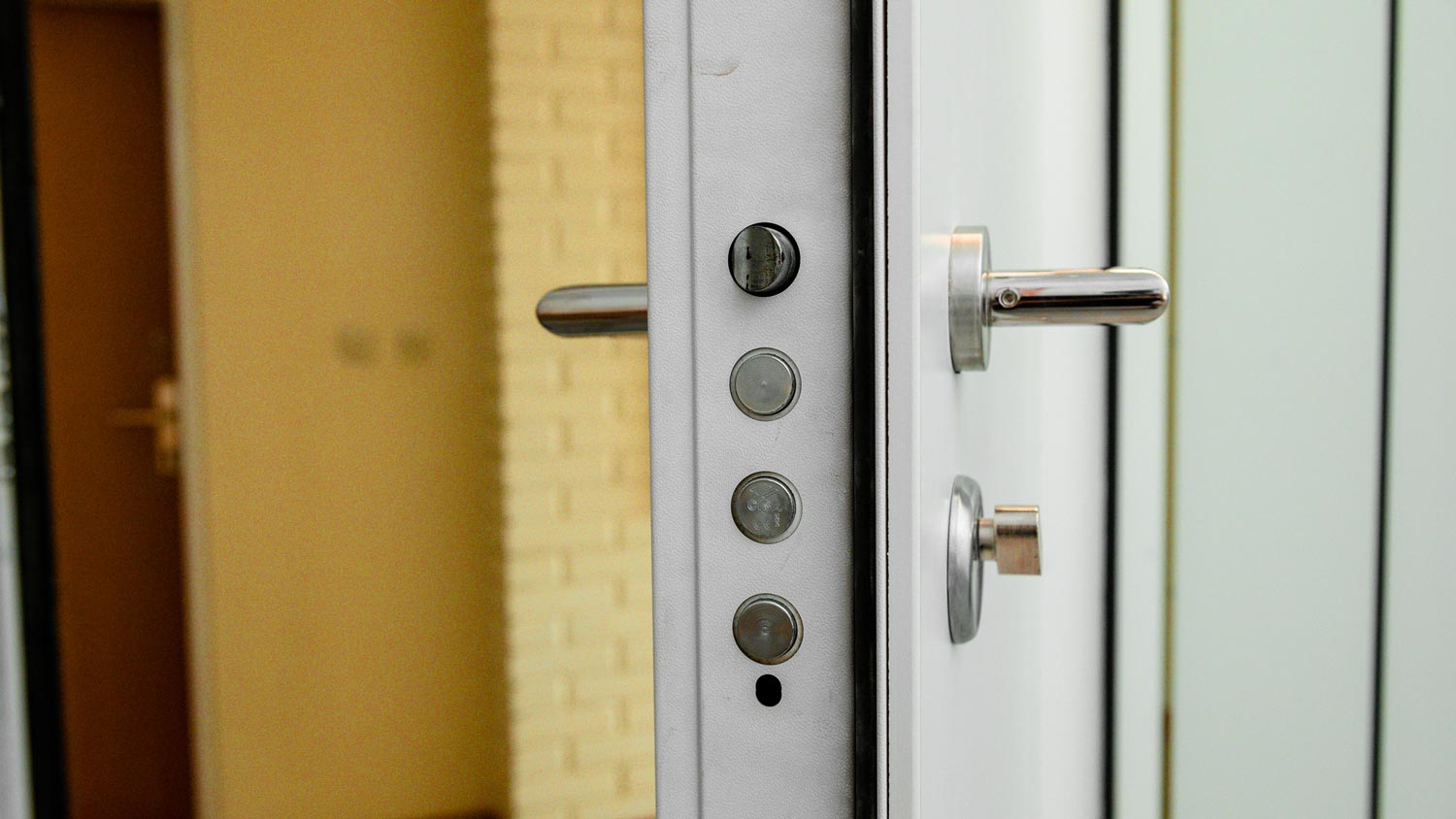
Sliding glass door repairs help maintain security, efficiency, and smooth operation. Regular upkeep and professional service prevent costly future problems.
The average pocket door installation cost is $1,050


Pocket doors free up floor space and add a sleek design touch.
Costs range from $800 to $2,500, influenced by factors such as door size, materials, and labor.
Demolition, utility relocation, and regional rates can increase the price.
A pro guarantees a smooth slide, code compliance, and long-term durability.
This article was updated using automation technology and thoroughly reviewed for accuracy by HomeAdvisor Editor Ryan Noonan.
Installing a pocket door runs between $800 and $2,500, with most people spending an average of $1,050. Your price could range from $500 to $4,250 once factors such as materials, door size, and demolition costs are taken into account. Location and the door’s quality also affect the final bill. Hire a professional installer to ensure the work is code-compliant and built to last.
The cost to install a pocket door depends on various factors, including its size, the required demolition or modifications, labor rates, and finishes.
Standard pocket doors measure 36 inches, although they’re available in a range of sizes. The larger the door, the higher the installation and material costs will be.
| Size (Inches) | New Installation Cost | Remodel Installation Cost |
|---|---|---|
| 32 | $450–$1,500 | $1,350–$2,200 |
| 34 | $500–$1,600 | $1,400–$2,800 |
| 36 | $550–$1,850 | $1,550–$2,950 |
| 46 | $600–$1,900 | $1,600–$3,100 |
| 48 | $700–$2,800 | $1,600–$3,800 |
| 60 | $800–$3,300 | $1,700–$4,200 |
Opening up a wall for a pocket door costs $1,200 to $2,500—often the most expensive part of a retrofit. If the wall isn’t load-bearing, the job is simpler and lands at the lower end of that range. A load-bearing wall requires a structural engineer to ensure everything is up to code, which increases the price.
Wall work can snowball. You may need to relocate wiring, plumbing, or HVAC ducts, and that additional labor—plus any required permits—will increase the total cost.
Here’s what you can expect to pay for these modifications:
| Modification Type | Average Cost |
|---|---|
| Demolition | $1,200–$2,500 |
| Plumbing | $1,250 |
| Electrical | $50–$130 per hour |
| HVAC | $450–$2,200 |
Labor rates vary by market and by contractor. For a straightforward six-hour installation, expect to pay a general contractor between $350 and $600. On larger new-builds or remodels, many pros charge 10% to 20% of the project cost.
There are three main types of pocket door installations: new construction, retrofitting existing door frames, and installing French doors. Each method affects the complexity of the installation and the overall cost.
Pocket doors cost between $550 and $3,300 to install during new construction, compared to $150 to $200 for a standard door. Installing a pocket door in a new build is significantly easier than retrofitting, which reduces labor and demolition costs.
Installing a pocket door in an existing wall ranges from $1,550 to $4,200, depending on demolition and additional modification requirements. Pocket doors require a track within the doorway and adjacent wall, which sometimes requires remodeling the wall.
French pocket door prices vary depending on the type of installation. Installation in new construction costs between $750 and $1,850, while retrofitting an existing wall for French pocket doors ranges from $2,500 to $7,000. French doors present additional installation challenges, including heavier glass and complex framing, which increase total expenses.
Pocket doors are available in various materials, each with different benefits and price points. The table below outlines the cost of standard installation in new construction for each material. Remodels add between $900 and $2,200 to the total cost.
| Material | Cost Range Per Door (With Installation) |
|---|---|
| Hollow core | $500–$800 |
| Glass | $550–$2,200 |
| Fiberglass | $600–$1,000 |
| Solid wood | $600–$2,200 |
| Aluminum | $600–$2,200 |
| Chalkboard | $500–$2,200 |
Hollow core doors cost between $500 and $800 to install in new construction. They’re lightweight and affordable, featuring a shell made of wood, medium-density fiberboard, or particleboard, with a cardboard or plastic interior. Since they’re hollow inside, they aren’t very durable and don’t insulate against noise well.
The total cost to install glass pocket doors in new construction ranges from $550 to $2,200. Glass doors offer enhanced lighting and aesthetic appeal, but require a stronger frame and proper installation to protect the glass, which increases labor demand.
Expect to spend $600 to $2,200 to install solid wood pocket doors in new construction. A popular option, solid wood doors are strong, long-lasting, and come in various grains to suit your home’s style. Even as they wear over time, they can be easily repaired or restored with sanding, staining, and painting.
Want to save on your pocket door installation? Here are some tips to help you stay on budget:
Collect at least three quotes from local door installation companies before making a commitment.
Fold the pocket-door work into a larger remodel to spread the one-time fees and secure bulk discounts.
Strike a balance between style, durability, and price when choosing materials.
Retrofitting an existing frame can be more cost-effective than knocking down a wall.
Select a wall that is free of plumbing, wiring, or structural elements to keep the job simple.
DIY can trim upfront costs, but a pocket door isn’t a beginner project. You’ll tackle demolition, framing, and possibly rerouting wiring, plumbing, or HVAC lines. Without experience, it’s easy to rack up pricey mistakes—or fail code inspections.
Bringing in a professional door installer near you ensures the job’s done right. Experienced contractors possess the necessary tools and expertise to handle challenges such as load-bearing walls and hidden utilities. While it might cost more initially, you’ll save time and avoid potential headaches.
No place is more important than your home, which is why HomeAdvisor connects homeowners with local pros to transform their houses into homes they love. To help homeowners prepare for their next project, HomeAdvisor provides readers with accurate cost data and follows strict editorial guidelines. After a project is complete, we survey real customers about the costs to develop the pricing data you see, so you can make the best decisions for you and your home. We pair this data with research from reputable sources, including the U.S. Bureau of Labor Statistics, academic journals, market studies, and interviews with industry experts—all to ensure our prices reflect real-world projects.
From average costs to expert advice, get all the answers you need to get your job done.

Sliding glass door repairs help maintain security, efficiency, and smooth operation. Regular upkeep and professional service prevent costly future problems.

If you’re planning to install a sliding glass door, consider budgeting using our project cost guide.

Budget for barn door installation costs based on factors such as materials, door type, door size, hardware, professional labor, and more.

Wondering who installs storm doors? Compare storm door installers and handypersons, see the pro process, and know what to ask before you hire

ho installs French doors? Learn which pros to hire, how they do it, and what installation costs to expect so you can plan with confidence.

Who installs fire doors? Learn which door installation experts to hire and what qualifications to look for before you book a pro.